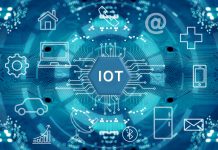Dr Kevin Flint from the IAPD discusses changes in education.
Over the past four decades primary and secondary education in the UK has become consumed, it would seem, by the imperative to generate improvements in the system. Who, after all, would wish to argue against improving education? That’s the question that started my work with Nick Peim on just such a quest five years ago. Nevertheless – the school improvement agenda had already dominated almost all developed and many developing countries around the globe for the same period of time and so created its own momentum and trajectory. It has been paralleled in Higher Education by a number of training institutions for new teachers adopting a policy of grounding such training upon the social sciences – principally sociology, anthropology and psychology.
Philosophical study of education as part of the training of teachers lost whatever currency it had at the time within the training regime for the National Curriculum, when the new orders in the UK for a National Curriculum were enshrined in government policy in the late 1980s. It now remains an active and insightful field for education, which remains on the sidelines of improvement efforts.
Over the last decade, too, the requirements for schools to provide quantitative measures of the improvements made ‘throughout the land’ have continually been notched up each and every year. This is hardly surprising from one perspective. Having adopted a policy commitment to the utilization of science in education as part of a strategic focus upon examining the trajectory of improvements that can be measured annually, from this perspective it is clearly logical to ground education in the social sciences.
But, given that education is concerned with human beings isn’t more than science required to inform such a process? Indeed, none of social sciences specifically address the issue of being/ beings. Moreover, as former trainer of new teachers I hadn’t been shocked to find that in my own former institution, Nottingham Trent, there was never any formal mention of what it means to be human in any of the modules on offer to students in the last ten years. Understandably, in many ways, all of the requirements from the Department of Education and from its Ofsted regime, are designed to ensure that the quantitative monitoring of teachers’ performances in improving young people’s grades in formal examinations, taken at different stages within the National Curriculum, continue to create ever more powerful data.
But, there’s a paradox at work in what Michel Foucault called the ‘apparatus of education’. Ever increasing the demands upon schools for quantitative monitoring of performances, moreover, simply not only elides the paradox, it adds to it further weight. The paradox, as Nick Peim and Kevin Flint [2012] had shown in our earlier work, Rethinking the Education Improvement Agenda, following Heidegger’s logic, arises because in the apparatus of education, the children, students, teachers and others are all required to generate the excess energy and possibilities necessary to ensure young people in different schools are indeed gaining higher grade performances in their examinations. Their actions are largely shaped and driven by the demands of technological enframing within the apparatus of education.
As human beings, then, so many within the apparatus of education are always at risk of being reduced to that ‘standing reserve’ of excess energy and possibilities required to drive this system.
What those who work with the regimes of truth [such regimes variously appear to change each year] used to structure improvement efforts within the apparatus would appear to remain blinded by, is the play of the Other in every identity, in every quantification demanded by the systems in place.
Of course, within the regimes of truth dominant in the apparatus of education the earlier deconstruction of the apparatus we had undertaken simply has no leverage. The gathering powers of being as presence, its sublime naming force; driving that apparatus of education in the enframing, simply are not expressive of language or concepts that appear in quantitative methodologies used to evaluate and monitor improvement efforts.
But, given the exponential increases over the past 30 years in information technologies used in formal education, is it not time to invoke qualitative research concerned with the spaces cultivated in the apparatus of education. Are these spaces being reduced with the increasing quantitative demands of the system? How do children, students, teachers and others feel about the spaces in which they work? Is it not time to get some good answers to these questions?
From my own in philosophy, then, what seems to be missing from the apparatus of education are questions and a language concerned with what it means to be human in our contemporary world.
Bibliography
Flint, K.J. and Peim, N.A. [2012] Rethinking the Education Improvement Agenda: A critical philosophical approach, London and New York: Continuum
Dr Kevin J. Flint
Reader in Education
Telephone: 01158483971
Mobile: 07531754709
email: kevin.flint@ntu.ac.uk








